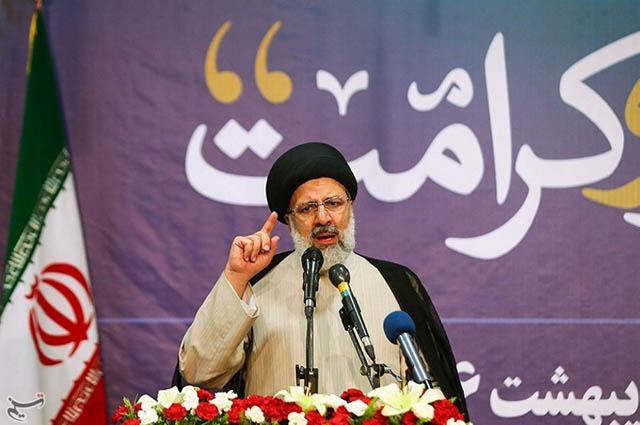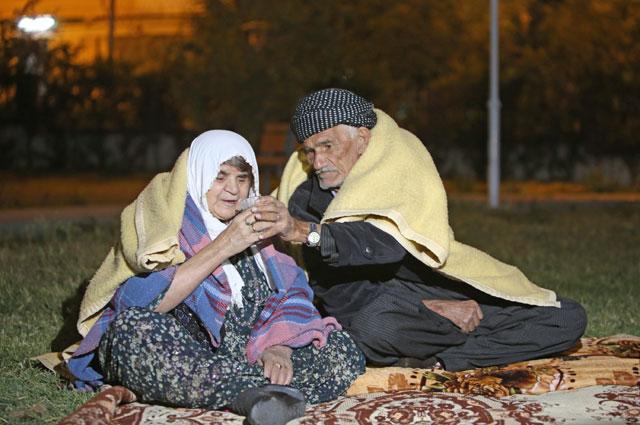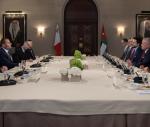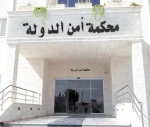BEIRUT — The article on Iran’s semi-official Fars news agency appeared routine: The minister of roads and urban development said the ministry does not have a contract with construction firm Khatam Al Anbia to complete a major highway heading north from Tehran.
Two things made it stand out: Khatam Al Anbia is one of the biggest companies controlled by the Islamic Revolutionary Guards Corps (IRGC) and company head Ebadollah Abdullahi had said just three days earlier that it did have the contract.
The December report was one of a series of signs that President Hassan Rouhani, who came into office last August, is using the political momentum from a thaw with the West over its nuclear programme to roll back the guard’s economic influence.
Existing government contracts with the guards have been challenged by ministers and some, like the highway contract, that were left in limbo when Rouhani succeeded the more hardline Mahmoud Ahmadinejad, have been rebuffed.
Senior commanders in the guards, established 35 years ago this week to defend the clerical religious system that replaced the Western-backed Shah, have criticised the nuclear talks but been more muted over the curbs on their economic interests.
Major General Mohammad Ali Jafari, said in December that Ahmadinejad’s government had insisted the guards get involved in the economy.
“But we have told Mr Rouhani that if he feels the private sector can fulfil these projects, the guards are ready to pull aside and even cancel its contracts,” he said, according to the Iranian Students’ News Agency.
In the same speech, Jafari lashed out at the nuclear negotiations, saying Iran had lost much and gained little and took aim more directly at Rouhani. “The most important arena of threat against the Islamic revolution — and the guards have a duty to protect the gains of the revolution — is in the political arena. And the guards can’t remain silent in the face of that,” Fars quoted him as saying.
Mohsen Sazegara, one of the founding members of the guards who now lives in the United States, said that was no surprise. “It was predictable that the guards would have a cold and harsh response,” he said.
“It’s because they see themselves as running things. And more importantly they’re not happy that their hands have been cut out of some oil, energy and road projects. And they’ve shown this displeasure in a number of ways.”
Ideology under threat
The interim nuclear deal agreed with the West in November threatens the ideological basis of the power of the guards, set up to counterbalance the military and protect the 1979 Islamic revolution from external and internal interference.
The nuclear programme, which Guard commanders call a source of national pride, is being curbed in return for sanctions relief and a diplomatic thaw with the country the guards have long said is their biggest enemy, the United States.
Despite the criticism from the top, the guards are not a monolithic organisation and there are elements within it which have reacted more pragmatically. At least one senior commander has spoken publicly in support of the nuclear deal.
For now, backing for the nuclear talks from Supreme Leader Ayatollah Ali Khamenei, the highest power in the country which the guards, at least in public, must defer to, has kept the hardline elements within their ranks in check.
There is also a realisation that the dismal state of the economy, largely brought about by sanctions, leaves the country few options.
“Khamenei himself is supporting the talks,” said Sazegara. “And from another side the guards don’t have much choice given the situation with the economy which has scared everybody.”
The Revolutionary Guards control broad sections of the economy and are also involved in political and cultural activities. The US Department of the Treasury has said in imposing sanctions that the IRGC controls “billions of dollars of business”.
At times, guard businesses, which include a share in the country’s largest telecommunication company and construction firms, overlap and work closely with an organisation controlled by the Supreme Leader that Reuters estimates is valued at approximately $95 billion.
In November, the news agency published a three-part series examining how the organisation, called Setad Ejraiye Farmane Hazrate Emam in Farsi, has become one of the most powerful entities in Iran.
During former president Ahmadinejad’s two terms in office, the guards expanded their economic interests as sanctions ramped up. Now, Rouhani is using the unique opening presented by the nuclear deal to decrease their economic presence and, as a result, their broader influence in the country.
Ali Alfoneh, a senior fellow at the Foundation For Defence of Democracies and an expert on the Revolutionary Guards, said the government used two main arguments to cancel the contracts.
“The government can’t afford the contracts, and the state is no longer subjected to the sanctions regime and there is no need [for a] state of emergency where IRGC participation in the projects is needed,” Alfoneh said by email.
While Rouhani’s use of the nuclear negotiations to decrease the economic influence of the guards has heightened tensions, the ongoing talks over the country’s nuclear programme are more contentious for the guards, analysts say.
Some senior guard commanders have pointed out that stopping uranium enrichment altogether could be a slippery slope towards the dismantling of the country’s nuclear programme, which Western leaders say they fear has military aims.
Guard commanders and senior Iranian government officials maintain that the country’s nuclear programme is peaceful. They argue that enrichment, a controversial point in the talks with the United States, Britain, France, Russia, China and Germany, is necessary for medical and energy purposes.
Rasoul Sanai-Rad, the political deputy of the guards, warned against giving too many concessions, pointing to Libya where Muammar Qadhafi agreed to dismantle his nuclear programme but was later attacked by a coalition of Western countries.
“Libya gave up all of its facilities but what result did they receive?” he said in an interview with Fars, one of almost daily attacks on the deal by Guard commanders.
Rouhani has fought back: In a speech last Tuesday, he said that only a few “ignorant” people have been speaking out against the deal and asked for academics to express their support publicly.
But if Rouhani pushes too far in negotiations due to start this month on a long-term deal, Khamenei could withdraw his support which would allow hardliners among the guards to step in.
“The public statements of the IRGC commanders against the United States and allies clearly indicate attempt of the IRGC commanders to sabotage Rouhani’s opening to the West,” Alfoneh wrote.
















